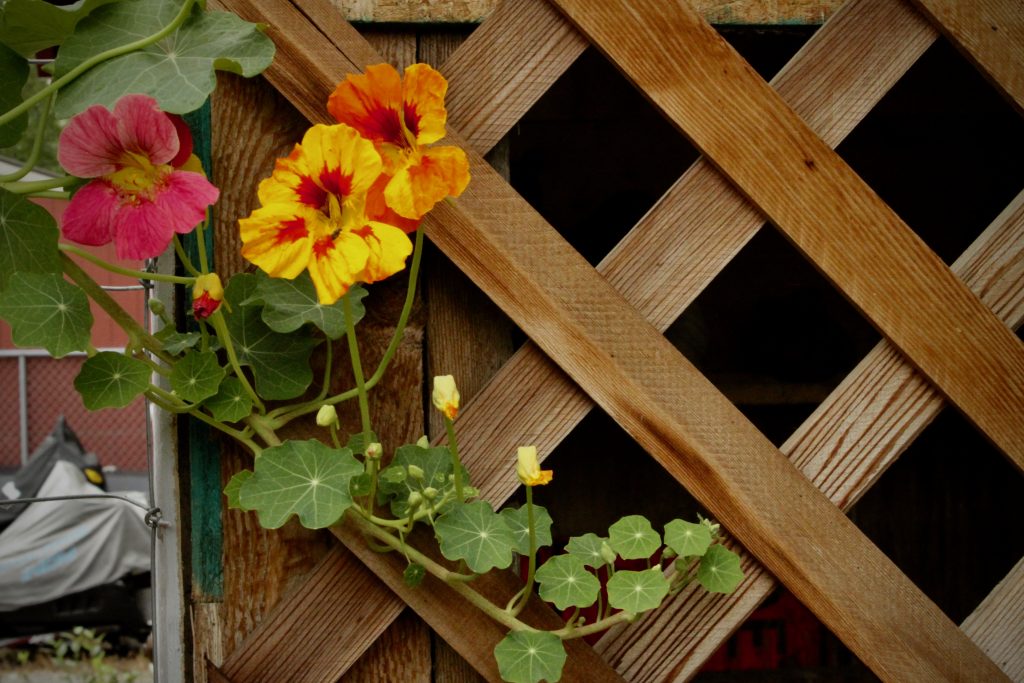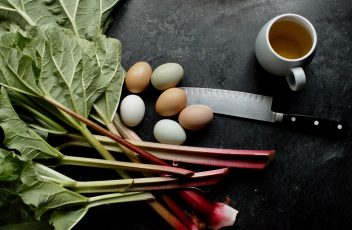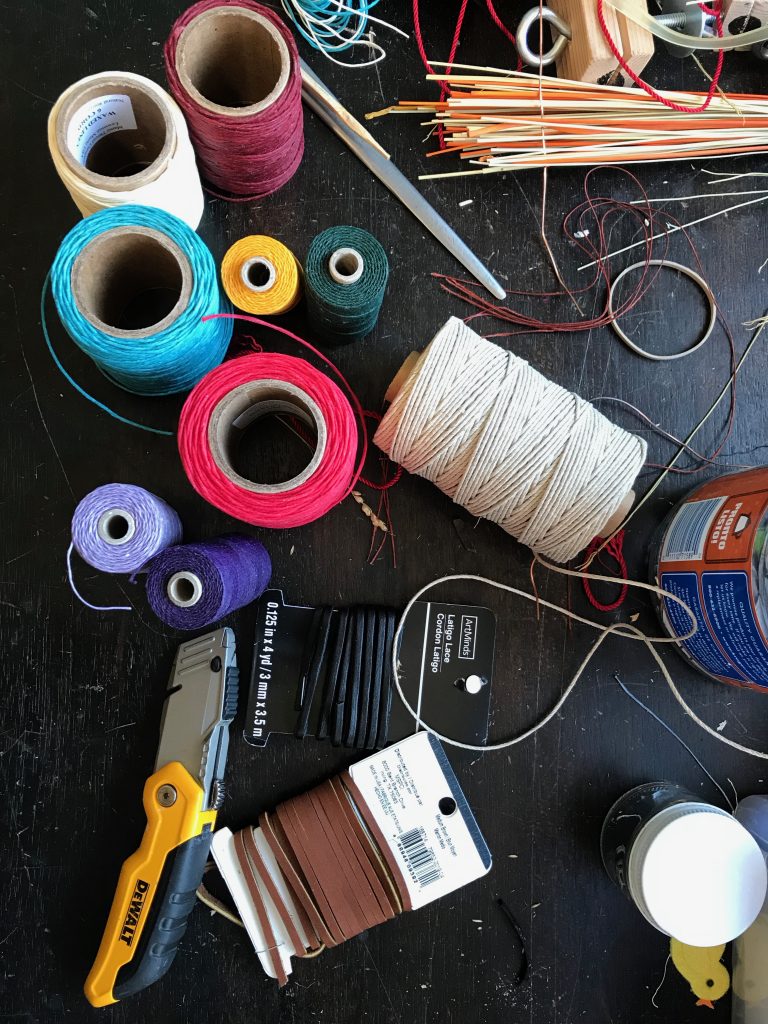
A question I often get asked is “Why did you decide to become a broom-maker?”
For me there are two answers. The first is the short version, which is that I love making beautiful, functional things from natural materials.
The second, much longer version involves a bit more circumloqution and autobiography.
Both are true.
Here is the long version, if you make it through to the end, you get $5 off your next broom purchase 🙂
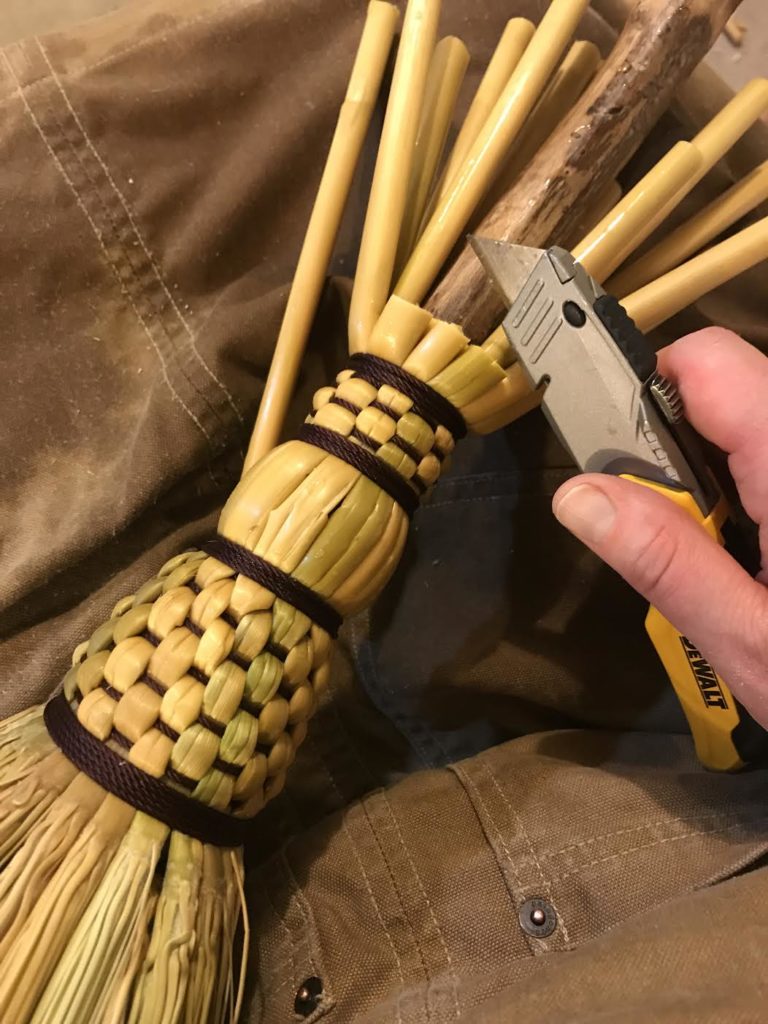
It started with a mistake. Actually, it was a long string of mistakes that I had been making over the course of many years, but the specific mistake was a measurement error I made on the tiles on my kitchen wall. It left a weird visual space and I felt like I needed to hang something pretty but useful there, so it wouldn’t drive me crazy looking at it every day. A broom seemed like the perfect option—I have three young kids and a super floofy dog, so I sweep often— but as I looked at the worn-out horror of my $14 plastic bristled broom from Target I had a thought… “there must be a broom out there made from natural materials that sweeps and looks beautiful.”
20 minutes later I was on my way down a Google rabbit hole on the history of sorghum brooms and their modest present-day renaissance. An article in the New York Times talked about a broommaking class offered at the John C. Campbell Folk School. At this point in my life I had never even heard of a folk school, so my mind was pretty blown when I opened up the roster of class offerings. A retreat to a place centered around the preservation and sharing of traditional handcrafts was basically a dream come true to me.
But let’s jump back to that bigger string of mistakes. If I trace their zig-zag pattern back far enough, I can see that this run probably started in my early childhood. I am the second oldest in a family of 6 kids. I grew up in Alaska poverty (no money for school clothes or groceries, but a freezer full of moose & salmon), with an alcoholic parent who was both the best dad ever and an unpredictable rage-monster depending on his stress and intoxication levels. My older brother snatched up the role of trouble maker, and my younger sister was the super-organized, no nonsense go-getter. Mad scientist was already taken by my other brother, so I fell into the role of over-achieving second born and I worked at people-pleasing like it was a full-time job. I learned pretty early that not rocking the boat and just going with other people’s wishes was definitely the path of least resistance and generally a safer option. Also, it makes people like you. While this skill might have been a survival necessity for me as a child, I carried it into my adolescence and adulthood with me where I no longer needed it and it began to cause some significant problems in my life that I wouldn’t even recognize until I was in my mid-thirties.
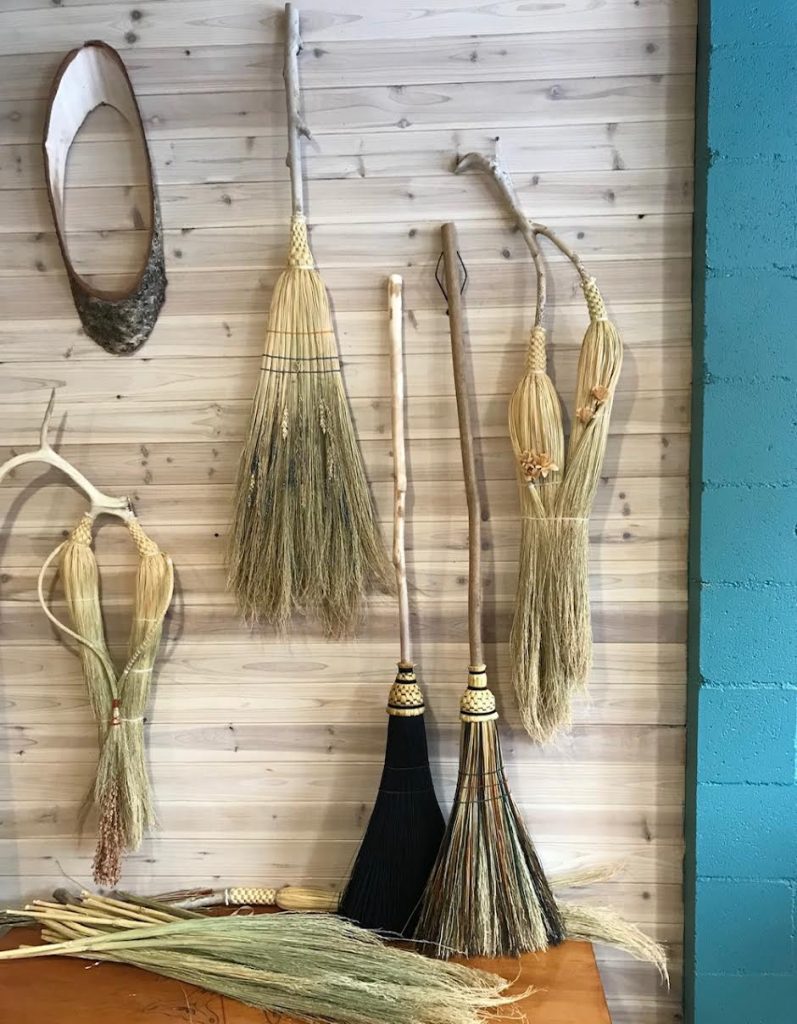
I am a person who has always been drawn towards making things with my hands. Both of my parents were/are artists in their own right—woodworking, carving, quilting, basket-making, so it seemed natural that creating things would be my first love. When I was six we lived in upstate New York for a time. The only thing I remember from my first-grade year (besides my super strict art teacher Mr. Cruise, who had a monocle and yelled at me daily about being left-handed) was a magical field trip we took to the Cornell Glass Factory. As I watched the glassblowers breathe life into molten blobs of glowing minerals I knew in my heart I was going to grow up to be a maker, and that I was put on this earth to create and share beauty.
Later that year my parents drove our family back to Alaska—an epic cross-country trek in a gas-guzzling GMC Suburban, peppered with camping in some of the most beautiful spots in the country, and the only trip my family ever took together until I was in my twenties. We settled 15 miles out of Homer into a tiny log cabin that barely fit the 6 of us at the time, and after my two youngest brothers were born we moved into a bigger house a couple miles down the bumpy dirt road. In spite of the episodic terrors of my childhood I actually had one of those delightful, free-range upbringings where my siblings and I were allowed to roam the fireweed-covered hills and build forts in the summer woods. We had plenty of books to read, and my parents’ record collection to keep us occupied on bad-weather days. I was lucky enough to grow up in the last digitally-disconnected generation. The only television channel we had was PBS, and if you wanted a private phone conversation you had to walk down the basement stairs trailing the super long twisty phone cord behind you. I spent hours pouring over my dad’s drawing books from college and practicing with the expensive PrismaColor pencils my parents got me—an extravagant gift at the time, and the first thing I remember as really being only mine.
It never actually occurred to me as a little kid that we were poor. My mom is one of those kitchen wizards who can turn a very few ingredients into something delicious and filling, and she could sew just about anything we asked her to. She is the kind of amazing home-maker who brings warmth and magic to birthdays and holidays even when there wasn't much in the way of money or gifts to go around. In summer we had a big garden filled with vegetables and strawberries, and we snagged (what my husband has since informed me were illegal) salmon in the Anchor River. My Dad shot a moose once a year, or whenever the freezer was empty, and in the between times there was always Pilot Bread and peanut butter or WIC cheese. Since I was homeschooled for large swaths of elementary school it wasn’t until middle school when kids started making snide remarks about our beat-up car and my unfashionable, hand-made or hand-me-down clothes that it struck me that we were on the have-nots side of the fence. Apparently the hand-made movement hadn’t really taken off yet in the 1980’s.
By the time I was in high-school I felt super self-conscious about being poor and threw myself into sports and school with a mission. I got heaped up with praise when I brought home straight-A report cards, the majority of my teachers loved me, and academics felt like a game with predictable rules that I could win at. I did cross-country running, basketball and track and those all had predictable and fair rules too, but my true saving grace in those 4 years was the pottery program and my two very different, but equally awesome art teachers. I was good at sports and school, but what I loved was art. When it came time to pick a post-secondary track I had options. I had a 4.0 GPA, was a pretty decent runner, and aced my ACT & SAT’s. My heart was tugging me towards attending a ceramic engineering program on the East Coast. My head, and my high school guidance counsellor assured me it would be a better option to attend a more traditional college closer to home. After all, you are bound to find art at a liberal arts college.
So at 17 I packed my bags and headed for a small Christian college in Oregon and I began a pattern of decision making in my life where my head got to always make the decisions, and my heart got to ride shotgun and keep its mouth shut. Hearts are tricky and unreliable—they take you on weird, and often unpredictable side roads. They rarely stick to the itinerary.
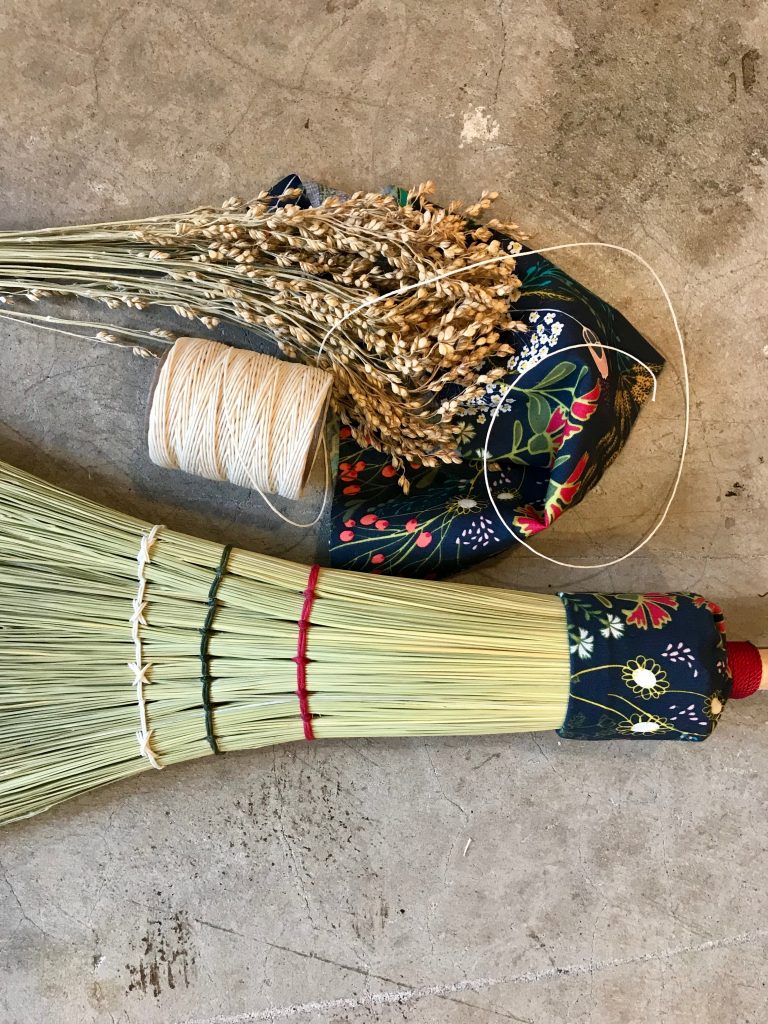
I’m going to fast forward in time about 20 years, although lots of stuff happened during that time, this is a short story, not a novel.
I was now 36, a public-school-teacher-turned stay at home mom with a 1-year-old, 4-year-old and a 6-year old. I was homeschooling my oldest two kids while my husband worked long hours away to support our family. I was drowning in motherhood and feeling more than a little bit of bitterness about my life. I tried to squeeze in some creativity when I could, but it was intermittent at best. I felt really stuck. I hadn’t been away from my full time mom gig for more than a couple hours at a time once or twice a year. I was living far away from my family support network, and my husband’s family wasn't able to be particularly supportive at the time, even though they were geographically close. I was basically at a point in my life where I was hugely overwhelmed, taking care of everyone else, and resenting a lot of people for not being helpful (even though I never spoke up and asked for help). It was at this time that I decided renovating our 1980's kitchen would solve all my problems.
(spoiler alert: distracting yourself with home-renovations never solves deep-seeded emotional problems, more likely it just creates a set of new, different and expensive problems).
To be fair, our kitchen was old and falling apart and needed to be redone no matter what. So I threw myself into that project full force and I found my creative energy start flowing again. It was awesome. I turned 37 and I was cooking my kids’ food on a camp-stove on our porch in the snow, but my life felt fun again. I felt joy bubbling up inside of me for the first time in a really long time. Then my Dad died.
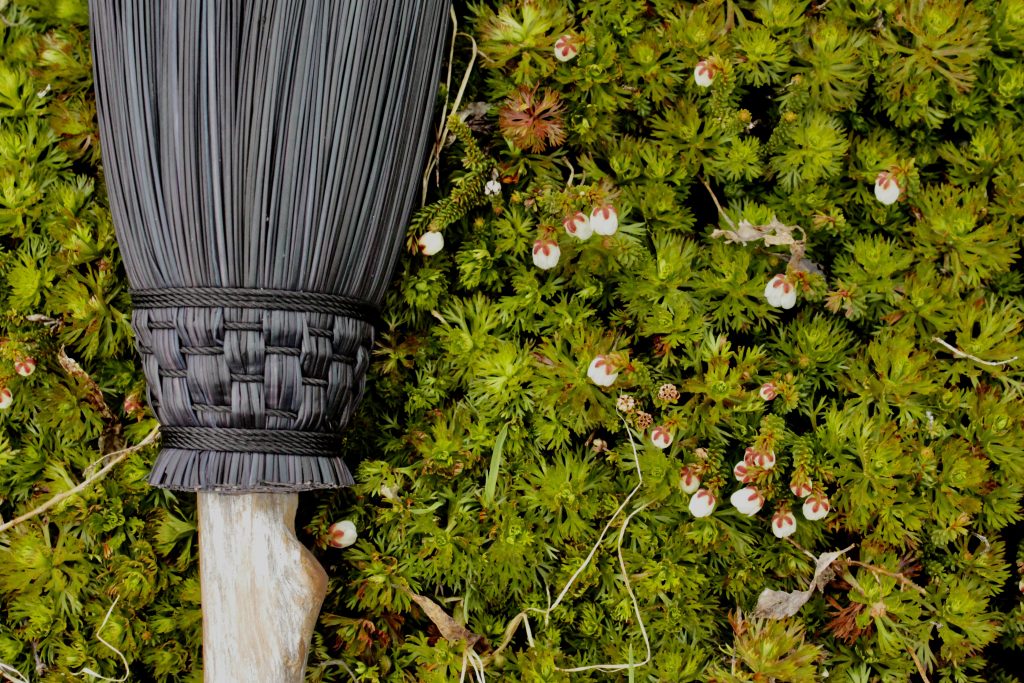
It’s strange, or maybe it’s not, but in the months leading up to my Dad’s passing I found myself thinking about him often. I came to see how many of the moments I had chalked up to shitty parenting were actually rooted in fear and an almost crippling anxiety-ridden love he had for his kids. Having that kind of terrifyingly big love for my own kids, I found I could relate and forgive. This forgiveness might have been the biggest grace extended to me in my life thus far, because on the morning that I got the call from my brother there was not one drop of bitterness left in my heart. Grieving the loss of a parent is a terrible and beautiful process, and I reckon it’s a much harder one if you have to peel the layers of bitterness from your heart before you get down to the real work. I spent a week with my siblings sorting through his few belongings. We laughed and cried a lot. We held him a proper Irish wake since we couldn’t give him the Viking funeral he always joked about (it turns out that is illegal.) When I got home my husband and the contractors had finished up the last bits of the kitchen remodel. It looked perfect. I laid on the floor in in my brand new kitchen and wept, because my Dad would never get to sit in there and drink a cup of coffee with me and tell me another one of his stories that I’d heard so many times already.
It doesn’t matter how beautiful your home is if you don’t get to share it with the people you love.
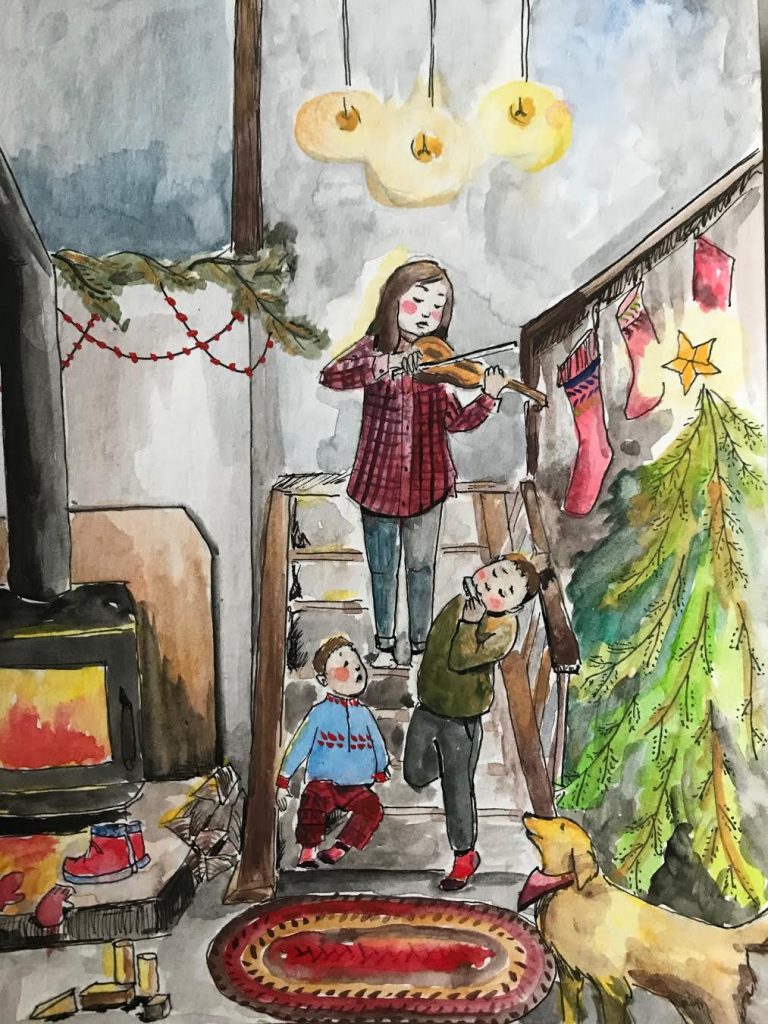
I spent the weeks after my Dad passed in a blur. Grief is a funny thing that makes one day feel almost normal and the next day feel like drowning. I spent a lot of days feeding my kids toast and jam for dinner and scrolling through my thought-catalogue of Dad-memories. I began to see an interesting pattern. My dad was kind of a dreamer. It’s funny that I never noticed this side of him when I was younger. He always had ideas and big plans for things he wanted to do. Some of them were crazy ideas destined for the garbage heap, but some of them were actually brilliant. Either way, he never followed through on most of them. Was he afraid that if he put his hopes and dreams out in the world people would laugh at them or reject him? Was he afraid of failure? It felt so sad to me; probably, I realized, because I am very much the same way.
Did I decide to hide behind a respectable teaching career and Pinterest-worthy home-maker image so I wouldn’t have to put any of my true self out in the world where it might feel the pain of failure or disapproval, or rejection? I made a deal with myself that the next weird idea I had—no matter how crazy—I would follow it through to the end. In memorandum.
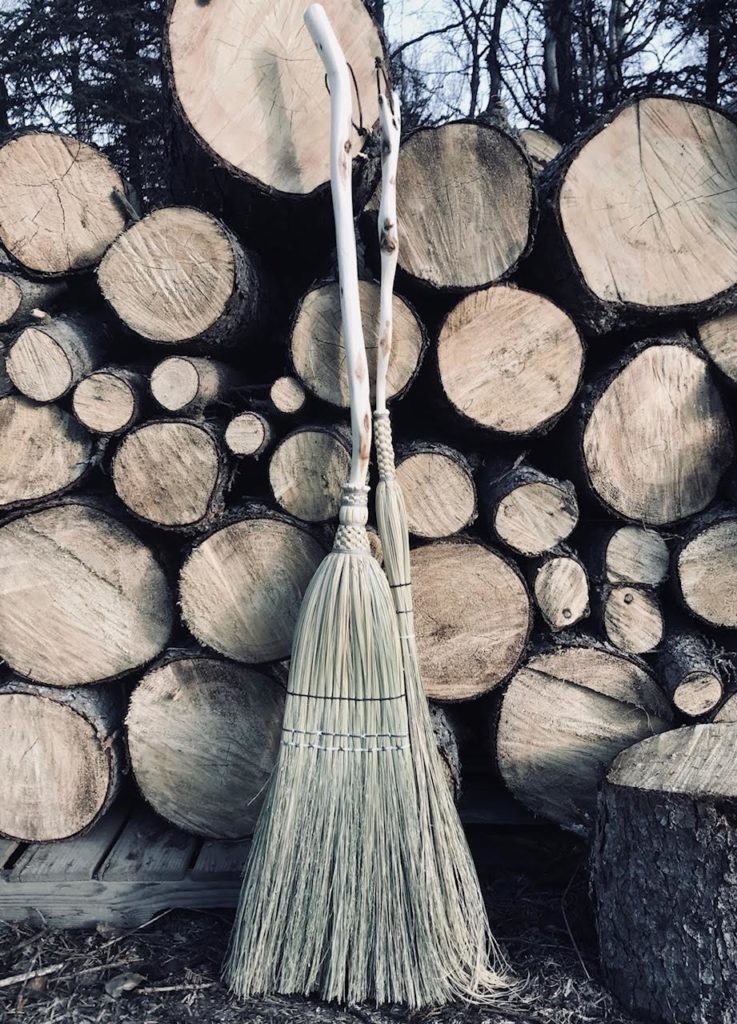
That is how I found myself enrolling for a week-long broommaking workshop with master-broommaker Mark Hendry at a folk school in North Carolina. My husband had been encouraging me to take a little mom retreat, and while he was surprised this is what I picked, he was supportive. Pretty much everyone else thought I was crazy, but they were nice about it. My brother did call to check on me while I was there to make sure I hadn’t fallen in with some kind of a cult by accident.
If broommaking is a cult, it is a good one to be in. I’ve never found a more down-to-earth or more supportive community of people than the broommakers I’ve met both in person or long distance. As a bonus, it turns out that I love making brooms--though I find it almost impossible to make a living at it right now. I like to make my brooms one at a time with a lot of contemplation. There is a kind of old magic in the way that the meditative work of sanding and weaving and sewing brings my head, heart and hands into alignment. It’s not great for mass production, but it has really given me insight into some future paths I might walk down to become a full-time artist, which is what I was always supposed to be doing anyway.
Teaching myself to ignore my heart-knowing and my intuition in order to build a picture-perfect life and garner the approval of other people has been the biggest failure of my life. I could write chapters on how much sorrow this has caused, and is still causing for me, and worse— for some of the people I love. But I am untangling the mistakes I have made one strand at a time and trying to sand off the rough edges when I come to them. This is weaving a more authentic way of being in this life. This is sweeping out the soul cob-webs.
This is why I am a broom-maker.

